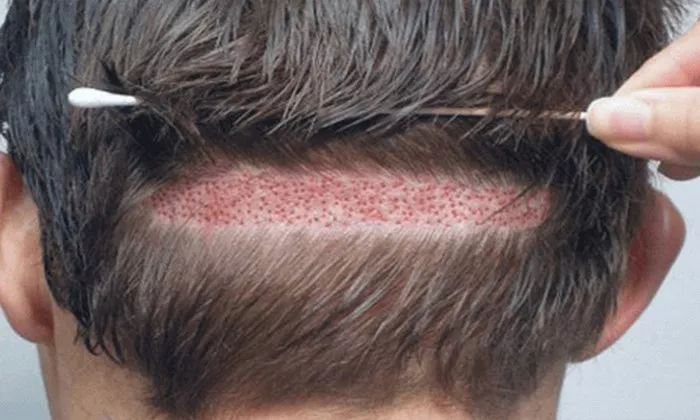Hair transplants have become a widely popular solution for individuals seeking to address hair loss and restore a fuller head of hair. While many people experience successful outcomes, it’s essential to recognize that not all hair transplants yield the desired results. In this article, we will delve into the factors that can influence the success of hair transplants and explore why some procedures may not achieve the expected outcomes.
The Science of Hair Transplants
Hair transplantation is a surgical procedure that involves the extraction of hair follicles from one part of the body (usually the back or sides of the scalp) and their transplantation to an area experiencing hair loss. The success of a hair transplant relies on various factors, including the patient’s candidacy, the surgeon’s skill, and the post-operative care provided.
Candidacy and Expectations
One crucial aspect of a successful hair transplant is determining whether an individual is an appropriate candidate for the procedure. Factors such as the extent of hair loss, the availability of sufficient donor hair, and the overall health of the patient play a vital role in predicting the success of the transplant. Unrealistic expectations regarding the amount of coverage or the density of the transplanted hair can also impact satisfaction with the results.
Factors Influencing Hair Transplant Success
Donor Hair Quality: The quality and density of the donor hair significantly influence the success of a hair transplant. If the donor hair is weak, fine, or in an unhealthy condition, the transplanted hair may not thrive as expected. A thorough evaluation of the donor area is crucial in determining the viability of the hair follicles for transplantation.
Surgeon’s Skill and Experience: The expertise of the surgeon performing the transplant is a critical factor in achieving successful results. A skilled and experienced surgeon understands the nuances of hair transplantation, including the angle, direction, and density at which the grafts should be placed. Inexperienced surgeons may lead to suboptimal outcomes, affecting the overall success of the procedure.
Recipient Site Preparation: The preparation of the recipient site (the area where the hair is transplanted) is essential for optimal graft survival. Adequate blood supply, proper spacing of grafts, and precise placement contribute to the success of the transplant. If these aspects are not carefully managed, grafts may not receive the necessary nutrients for growth, leading to subpar results.
Post-Operative Care and Follow-Up: Following the transplant, diligent post-operative care is crucial for the success of the procedure. Patients must adhere to specific instructions provided by the surgeon, including how to clean the transplanted area, manage swelling, and avoid activities that could compromise the grafts. Lack of compliance with post-operative care guidelines can contribute to unsuccessful outcomes.
Underlying Medical Conditions: Certain medical conditions, such as autoimmune disorders or untreated chronic illnesses, can negatively impact the success of a hair transplant. It is essential for patients to disclose their complete medical history to the surgeon to ensure a thorough assessment of potential risks and challenges.
Why Some Hair Transplants May Not Work
Poor Surgical Technique: One of the primary reasons some hair transplants fail to produce satisfactory results is poor surgical technique. This can include improper extraction of donor hair, incorrect placement of grafts, or insufficient attention to the overall aesthetics of the transplant. Choosing a skilled and reputable surgeon is critical to minimizing the risk of suboptimal outcomes.
Inadequate Donor Hair Supply: Limited availability of suitable donor hair can pose a challenge in achieving desired coverage and density. If the donor area lacks sufficient healthy hair follicles, the transplant may not meet the patient’s expectations. A comprehensive assessment of the donor area is crucial during the pre-operative evaluation.
Unrealistic Expectations: Unrealistic expectations on the part of the patient can lead to dissatisfaction with the results. It’s important for individuals considering a hair transplant to have a clear understanding of what the procedure can realistically achieve. Open communication with the surgeon about expectations and limitations is key to a successful outcome.
Poor Post-Operative Care: Inadequate post-operative care, including failure to follow the surgeon’s instructions, can contribute to graft failure and overall dissatisfaction. Patients must commit to the recommended care routine to optimize the chances of successful healing and hair growth.
Minimizing Risks and Maximizing Success
While no medical procedure is without risks, there are steps individuals can take to minimize the likelihood of an unsuccessful hair transplant:
Research and Choose a Qualified Surgeon: Thoroughly research potential surgeons, considering their experience, credentials, and patient reviews. A qualified and experienced surgeon is more likely to deliver successful results.
Realistic Expectations: Have realistic expectations about the outcome of the procedure. Understanding that a hair transplant can improve the appearance of thinning or receding hair but may not restore a full head of hair is essential for satisfaction with the results.
Complete Medical Assessment: Provide a comprehensive medical history to the surgeon to identify any underlying conditions that could affect the success of the transplant. Open communication about lifestyle factors, medications, and health status is crucial.
Adherence to Post-Operative Care: Commit to following the post-operative care guidelines provided by the surgeon. This includes proper cleansing, avoiding strenuous activities, and attending follow-up appointments.
See Also: Can Minoxidil Increase Hair Transplant Results: A Simple Guide
Conclusion
In conclusion, the success of a hair transplant depends on various factors, from the patient’s candidacy to the surgeon’s expertise and post-operative care. Understanding the potential challenges and risks associated with the procedure can help individuals make informed decisions about pursuing a hair transplant. By selecting a qualified surgeon, managing expectations realistically, and prioritizing post-operative care, individuals can increase the likelihood of achieving a successful and satisfying outcome.


